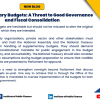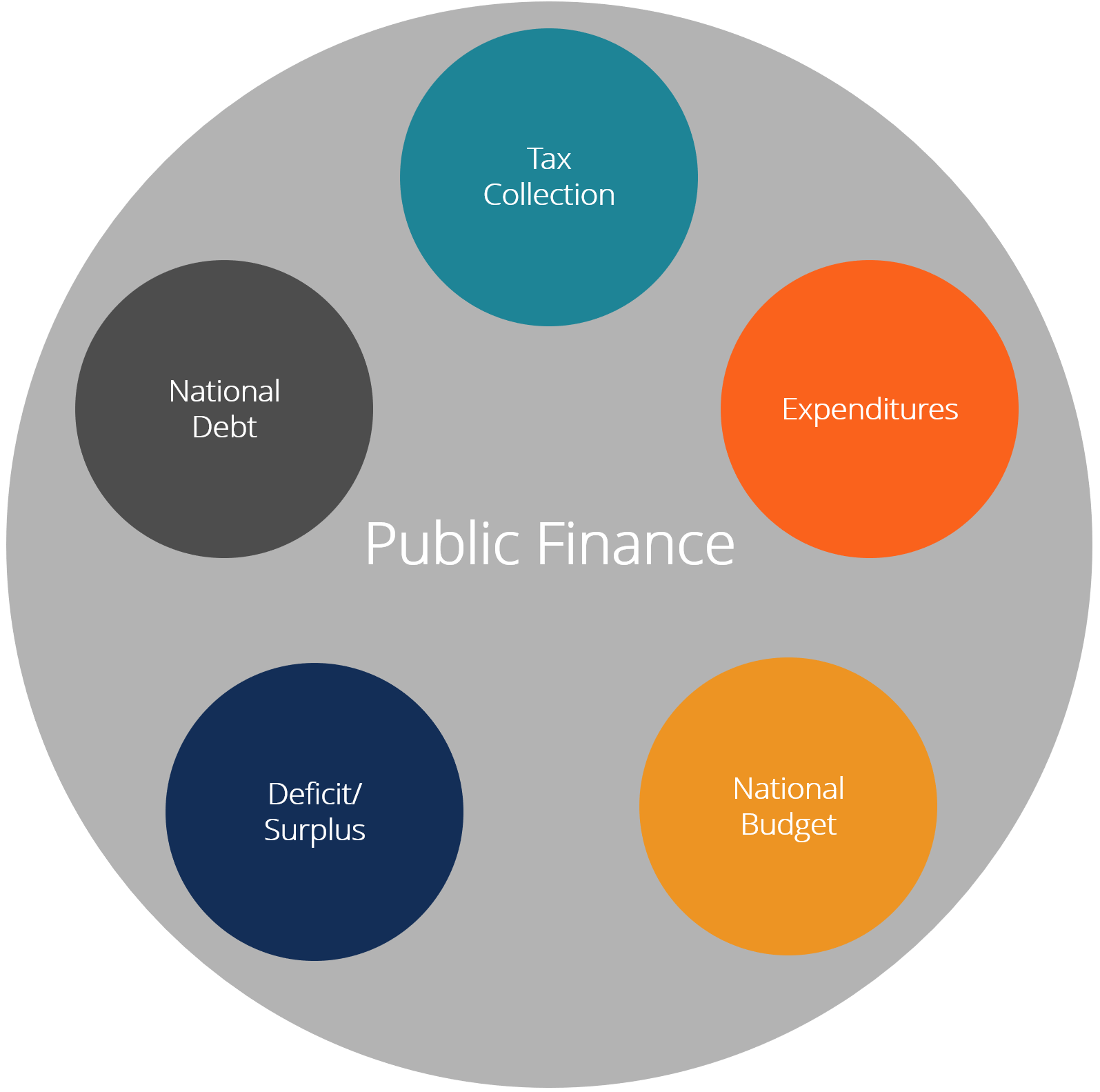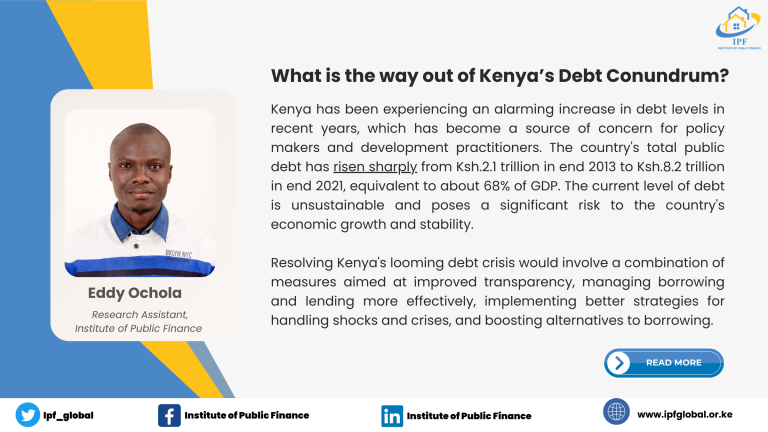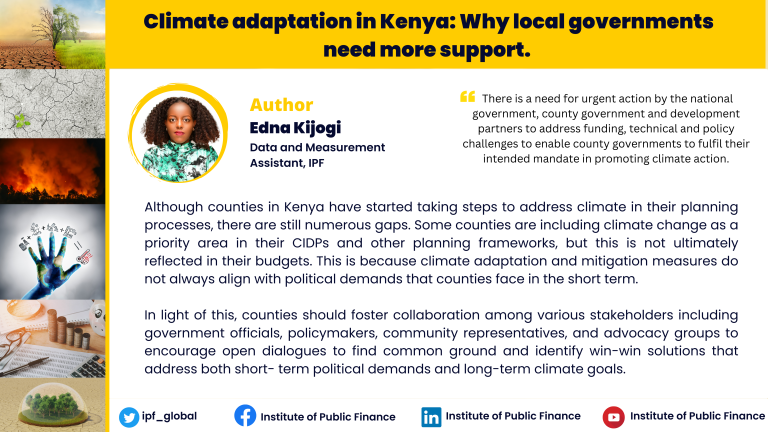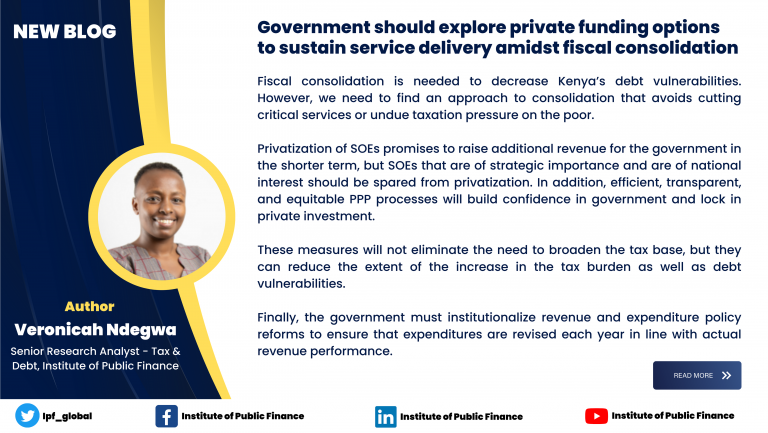Kenya is facing a significant burden of mental illness, as it is estimated that for every five Kenyans, one will have a mental illness in their lifetime. Depression is a particular concern, with 1.9 million Kenyans affected, placing the country 4th in terms of prevalence in Africa. The growing concern about mental health resulted in a proposal by the Ministry of Health in 2021 for the recognition of mental illness as a national public health emergency of epidemic proportions. Despite this, mental health financing in the country is relatively low, which has resulted in limited access to quality mental health care services and a high financial burden on individuals seeking mental health care. To address this urgent issue, the government should seek innovative financing approaches such as impact bonds to prioritize mental health financing.
Current expenditure on mental health is insufficient, as it accounts for only 0.01 percent of the total government expenditure on health, despite mental illness accounting for 13 percent of the entire disease burden. This is an expenditure of approximately 15 cents per capita. This is in stark contrast to the global median mental health expenditure per capita of US $2.5 (Ksh. 250), accounting for 1.8 percent of governments’ expenditures on health internationally. In addition to this, Kenya’s current expenditure is significantly lower than the estimated economic costs of the mental illness burden in Kenya of approximately 0.6 percent of the GDP in 2020.
Not surprisingly, chronic underfunding has resulted in a mental health care system that is poorly equipped to handle Kenya’s mental health crisis. A report by the Office of the Auditor General (OAG) indicates that there is a shortfall in the professionals required to provide mental healthcare services. For example, the psychologist-patient ratio is at 1: 4,600,000 against an ideal ratio of 1: 15,000 as established by the Ministry of Health. In addition, few mental health care centres are adequately equipped in the country. Psychiatric units are only available in 25 counties, leaving patients in the other 22 with the extra burden of travelling to seek services in a different county. Of the 19 psychiatric units audited by the OAG, 15 lacked all the basic equipment, 4 had at least one machine and only 2 had functional ECT machines.
For better outcomes, the government should increase budgetary allocations towards mental health at both the national and county levels. While donor funding may be relied upon in the short term, it is unsustainable over the long term. A common revenue source for mental health financing globally is ‘sin taxes’, which discourage consumption of unhealthy products such as alcohol while also providing for increased health budgets. While these taxes are sometimes criticized for hurting the poor, they can provide a great incentive for behavioural change, resulting in significant benefits that are considered pro-poor. These include improved health, fewer medical bills and higher labour productivity, resulting in higher incomes.
Given that such taxes already exist, the government should consider raising excise tax rates for products with high inelastic demand, such as beer. The additional revenue generated should then be earmarked for mental health financing. This would be effective as price increases for these products are unlikely to result in significant declines in consumption. A study undertaken by KIPPRA found that a 10 percent increase in the price of beer would only result in a decline of 3.7 percent in consumption. Furthermore, ongoing government efforts to combat illicit brews and alcohol would discourage the shift in consumption towards these harmful alternatives.
Another alternative and emerging financing option for mental health is Social Impact Bonds (SIBs). These bonds are preferred due to their outcome-driven nature, where investor returns are dependent on the program’s success in attaining predetermined goals. For an SIB targeting a mental health concern like depression, the investors would identify and fund evidence-based interventions such as therapy and support programs, and the government would repay the investors if the program successfully reduces the depression rates.
While most successful mental health SIBs have been implemented in developed countries, the successes of other impact bonds implemented domestically, such as the Adolescent Sexual Reproductive Health Development Impact Bond, imply that they are a viable means of financing in Kenya. With proper implementation and careful consideration, SIBs hold the potential to be effective in supporting mental health initiatives. However, it is crucial for the government to thoroughly assess its capacity to fulfil repayment obligations to the investors before engaging in such financing arrangements.
Author: Gladys Wachira – Research Assistant, Institute of Public Finance
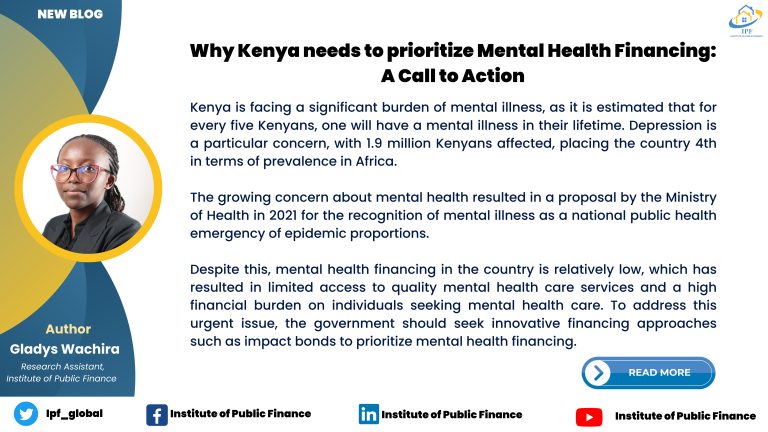
 Français
Français 
